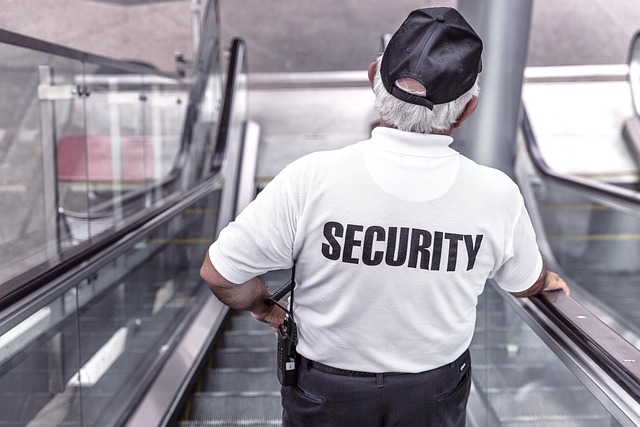Security Jobs in the UK: 5 Reasons They Offer Stability and Hidden Benefits
From offices to events, security teams protect people and property—and that consistency can bring stable schedules and long‑term prospects. Five standout advantages include accredited training, varied sites, overtime allowances, clear career routes and a range of employee benefits.

Accredited Training and SIA Licences Create Career Foundations
Security positions in the UK typically require proper certification, most notably through the Security Industry Authority (SIA). This regulatory body oversees licensing for security professionals, ensuring consistent standards across the industry. Obtaining an SIA licence involves completing accredited training courses covering essential skills like conflict management, legal awareness, and emergency procedures.
The certification process provides several advantages for security professionals. First, it creates a standardized entry requirement that helps maintain professional standards. Second, these qualifications are transferable between employers, increasing job mobility. Third, the structured training pathway offers clarity about skill requirements and professional development options.
It’s important to note that while discussing security careers and qualifications, this article provides general industry information rather than specific job listings or guaranteed employment opportunities. Any career decisions should be based on independent research into current market conditions and available positions.
Overtime Rates and Stable Shifts Provide Financial Predictability
The security industry typically operates on structured shift patterns, offering predictability that many other sectors cannot match. Security officers often work on fixed rosters with consistent hours, allowing for better work-life balance planning. This predictability extends to compensation structures as well.
Many security positions offer enhanced rates for overtime, weekend, or holiday work. This premium pay structure can significantly supplement base earnings for those willing to work additional hours or less desirable shifts. The nature of security work—requiring continuous coverage—means that overtime opportunities are often readily available across various settings.
Additionally, the essential nature of security services contributes to employment stability. Even during economic downturns, organizations typically maintain security personnel to protect assets and ensure safety, offering relatively consistent employment compared to some other industries.
Routes to Supervisor and Management Roles Support Long-term Growth
The security industry presents defined career progression pathways that aren’t always apparent to outsiders. Entry-level security officers who demonstrate reliability, strong communication skills, and good judgment often find opportunities for advancement into supervisory roles.
Progression typically follows established paths:
-
Entry-level security officer positions focusing on monitoring and reporting
-
Team leader or senior officer roles with increased responsibility
-
Site supervisor positions overseeing multiple officers
-
Operations management handling larger security teams and multiple locations
-
Regional management with responsibility for numerous sites
This structure allows security professionals to build careers with increasing responsibility and compensation. Professional development in specialized areas—such as close protection, electronic surveillance, risk assessment, or security consulting—can further enhance career prospects and earning potential.
Transferable Skills Development Enhances Employment Versatility
Working in security positions develops numerous skills valued across various industries. Security professionals regularly practice and refine abilities in communication, conflict resolution, observation, report writing, and emergency response. These competencies can transfer effectively to roles in customer service, facilities management, health and safety, and other related fields.
Many security roles also involve using technology systems, such as CCTV monitoring, access control software, and incident reporting platforms. Experience with these tools provides technical knowledge that remains valuable as security technologies evolve and appear in more workplace settings.
Additionally, security professionals often develop industry-specific expertise based on their work environment. Those in retail security gain knowledge of loss prevention techniques, while those in corporate settings become familiar with building management systems and visitor protocols. This specialized knowledge creates additional career pathways both within and beyond the security sector.
Varied Work Environments Prevent Career Monotony
The security industry offers considerable diversity in work settings and responsibilities. Security professionals can find positions in:
-
Retail establishments focusing on loss prevention
-
Corporate buildings managing access control and reception duties
-
Healthcare facilities ensuring safety of staff, patients, and visitors
-
Educational institutions protecting students and staff
-
Transportation hubs monitoring passenger flow and safety
-
Events and venues managing crowds and ensuring orderly proceedings
-
Residential properties providing access control and resident assistance
This variety allows security professionals to find environments that match their preferences and strengths. Someone who enjoys interaction might thrive in a corporate reception security role, while a person preferring less public-facing work might excel in monitoring positions. The ability to change settings without necessarily requiring additional qualifications provides flexibility throughout one’s career.
| Position Type | Typical Entry Requirements | Approximate Salary Range |
|---|---|---|
| Door Supervisor | SIA Door Supervisor License | £20,000-£25,000 |
| CCTV Operator | SIA CCTV License | £21,000-£28,000 |
| Security Officer | SIA Security Guard License | £19,500-£26,000 |
| Close Protection Officer | SIA Close Protection License | £25,000-£45,000+ |
| Security Supervisor | SIA License + Experience | £24,000-£32,000 |
Prices, rates, or cost estimates mentioned in this article are based on the latest available information but may change over time. Independent research is advised before making financial decisions.
Important Notice: This article provides general information about the security industry and potential career paths. It does not contain specific job listings or represent active hiring opportunities. The salary ranges and career progression pathways mentioned reflect industry averages and typical structures but are not guarantees of employment or compensation. Readers should conduct independent research into current job markets and available positions before making career decisions.
The security industry continues to evolve with changing technology and security needs. While the sector offers potential stability and several hidden benefits, success ultimately depends on individual skills, qualifications, local employment conditions, and ongoing professional development. Those interested in pursuing security careers should research current opportunities through job boards, recruitment agencies specializing in security positions, and direct employer applications.




